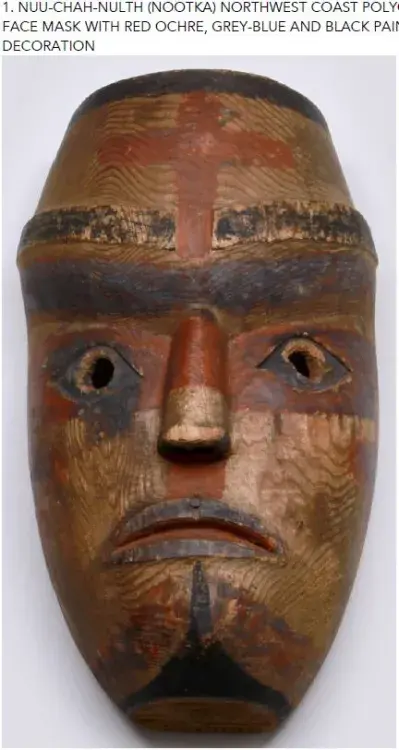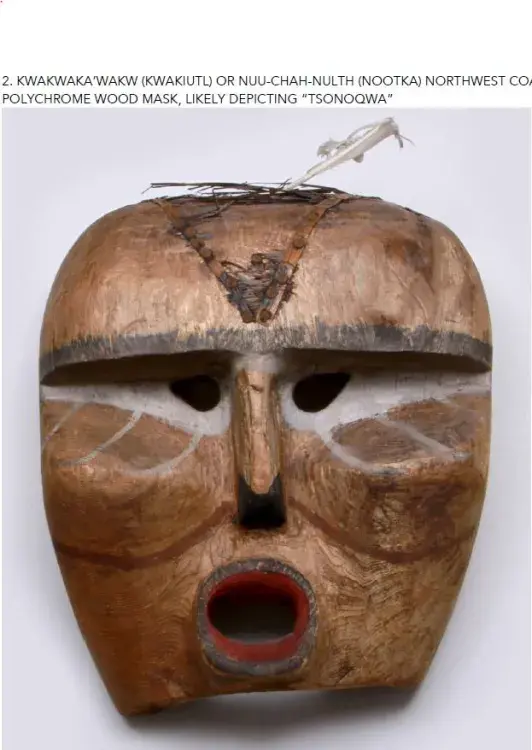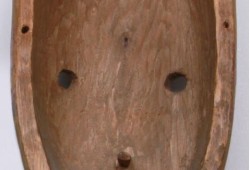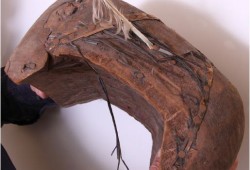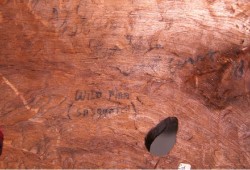The University of California, San Francisco (UCSF) has reached out to the Nuu-chah-nulth Tribal Council executive in an effort to identify the origins of two carved masks in their collection.
At least one of the masks may have come from a Nuu-chah-nulth grave. Under the Native American Graves Protection and Repatriation Act the university is required to return the items once identified.
“While we have limited information about the two masks, we believe they came from the land referred to today as Vancouver Island,” wrote Polina Ilieva of UCSF in a letter to Nuu-chah-nulth Tribal Council executives. “One of them has been identified stylistically as likely Nuu-chah-nulth, and we have reason to believe it was taken from a burial on Nuu-chah-nulth traditional lands (on the northwest coast of the island). The other mask we know very little about.”
Notes included with information about the masks say that “Nootka” carvings (along with those of other tribal groups) were “collected” by Spanish and English explorers as early as the 18th century.
The first mask, believed to be taken from a Nuu-chah-nulth grave, is made of red cedar measuring 14 inches by 7.5 by 6.25 inches and weighs two pounds six ounces. It has no artist’s signature and depicts a human face painted with red ochre, grey, blue and black paint. There is a nail head in the centre of the upper lip which holds a red cedar bite stick on the inside of the mask. The bite stick allows a dancer to hold the mask in position while dancing.
The mask was collected before 1900 and originated from a grave on the northwest coast of Vancouver Island.
The second mask is believed to be either a Nuu-chah-nulth or Kwakwaka’wakw rendering of a sasquatch or Tsonoqwa and was created about 1900. It is made of red cedar wood, bark, paint, nails and a white feather. It measures 12.24 inches by 11.25 by 6.5 inches and weighs 4 lb. 6.2 oz with no signature.
Nasreen Broomand, a graduate intern at the California university, is interested in repatriating the works of art - especially in the case of the mask believed to have been taken from a grave. Repatriation is the process whereby human remains and certain types of cultural items are returned to lineal descendants, aboriginal tribes, and Native Hawaiian organizations.
The Native American Graves Protection and Repatriation Act brings penalties for selling, or otherwise profiting from, any Native American human remains. This also applies to associated and unassociated funerary objects, sacred objects and pieces of cultural patrimony currently held or controlled by federal agencies or museums, regardless of their origins.
NTC President Cloy-e-iis, Judith Sayers, is reaching out to Nuu-chah-nulth artists, elders and historians for information about the masks.
“Can you identify either mask as Nuu-chah-nulth? Do you know who carved the masks? Really, any information would help,” said Sayers.
If the masks can be positively identified the university will work with Nuu-chah-nulth-aht to gather information about the pieces, and has committed to observe any cultural protocols to move forward with the consultation and repatriation process.
“Due to the limited information we have on the second mask, we have invited consultation on that second mask from a number of Kwakwaka’wakw First Nations as well,” Ilieva wrote, adding, “we recognize that tribes represent the best sources of information on their own cultures, particularly in identifying ancestral remains and cultural resources for repatriation.”
President Sayers says that she will call meetings to discuss the masks and how they should be handled, should information come forward about them.
San Francisco State University (SF State) is firmly committed to the repatriation of Native American ancestors and their belongings, and to the respectful curation of cultural materials. The primary goal of the SF State NAGPRA Program is to return ancestral remains and cultural objects to Native American tribal communities.
If you have information about one or both of the masks, please contact NTC President Judith Sayers at the Nuu-chah-nulth Tribal Council offices at 250-724-5757.

